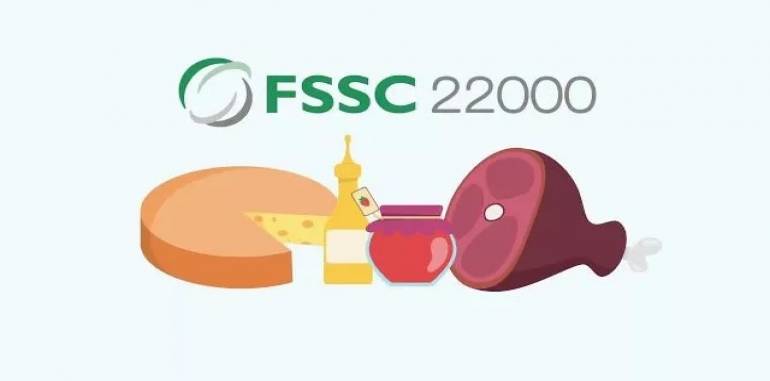Certification

FSSC 22000 (FSSC) Food Safety System Certification
FSSC 22000 is an internationally recognized certification scheme
for food safety in the food and beverage manufacturing industry. It's based on
ISO 22000 and additional requirements from FSSC.
Benefits Of FSSC 22000 Certification:
1. Enhanced Food Safety
2. Compliance with Legal and Regulatory Requirements
3. Global Recognition
4. Increased Customer Confidence
5. Improved Supply Chain Management
6. Enhanced Risk Management
7. Continuous Improvement
8. Operational Efficiency
9. Better Employee Training and Awareness
10. Support for Other Certifications
11. Improved Communication
12. Enhanced Product Quality
13. Reduced Risk of Product Recalls
14. Increased Market Competitiveness
15. Improved Management Commitment
16. Stakeholder Engagement
17. Adaptability to Change
18. Support for Corporate Social Responsibility (CSR)
19. Data-Driven Decision Making
20. Facilitated Audits and Inspections
By implementing FSSC 22000, organizations can effectively manage
food safety risks, enhance their reputation, improve operational efficiency,
and gain a competitive advantage in the food industry.
Service Related FAQ
What is product certification?
Product certification is the process where a product is tested and evaluated by an accredited third party to ensure it meets specific safety, quality, or performance standards. This certification confirms that the product complies with regulatory or industry standards.
Why is product certification important?
Certification ensures product safety, reliability, and compliance with laws and regulations. It builds consumer trust, provides a competitive edge, and can be a legal requirement in many industries.
What types of products require certification?
The need for certification depends on the product and industry. Commonly certified products include electronics, toys, medical devices, food products, and construction materials. It may also be required for products with environmental or energy-related claims, like energy-efficient appliances.
What are the common types of product certifications?
• Safety Certifications: Ensures products meet safety standards (e.g., CE marking in Europe, UL for electronics in the U.S.). • Quality Certifications: Demonstrates consistent product quality (e.g., ISO 9001). • Environmental Certifications: For products that meet eco-friendly standards (e.g., Energy Star, EPEAT). • Organic Certifications: For products made with organic materials (e.g., USDA Organic). • Health Certifications: For products in the medical, pharmaceutical, and food industries (e.g., FDA approval, NSF certification).
How do I get my product certified?
The process varies by certification type and country. Generally, it involves: 1. Identifying the right certification body: Choose an accredited agency or organization for the certification. 2. Testing: The product may need to undergo testing for quality, safety, or performance. 3. Compliance with standards: Ensure the product meets the relevant standards or regulations. 4. Certification application: Submit an application and relevant documentation. 5. Audit and inspection: Some certifications require an audit or on-site inspection. 6. Receiving the certification: If the product passes all requirements, you will receive the certification.